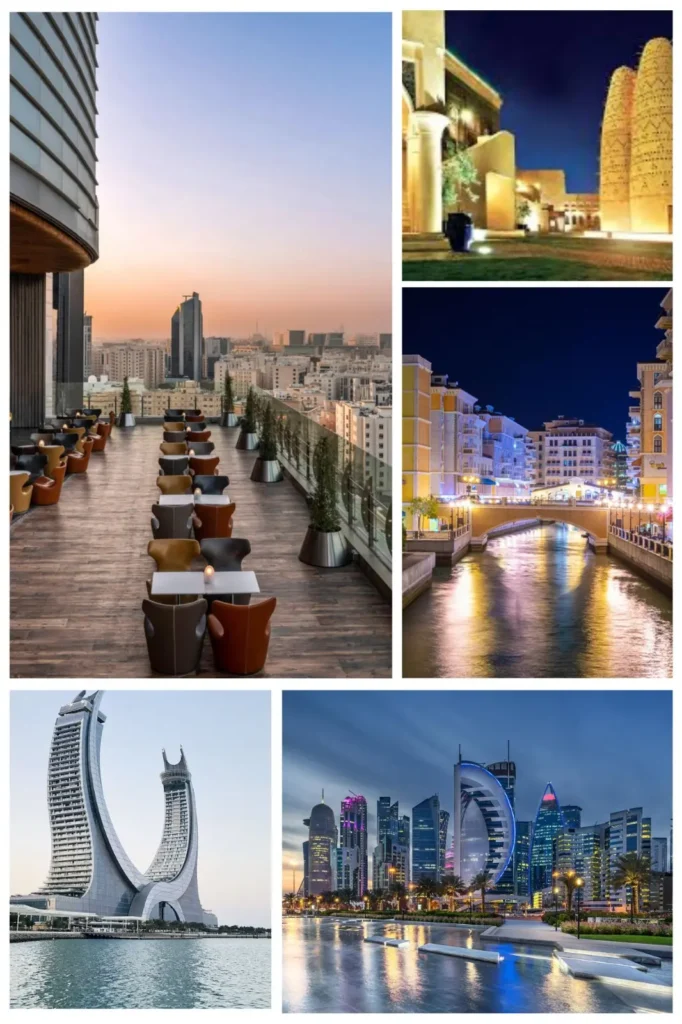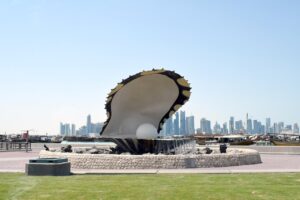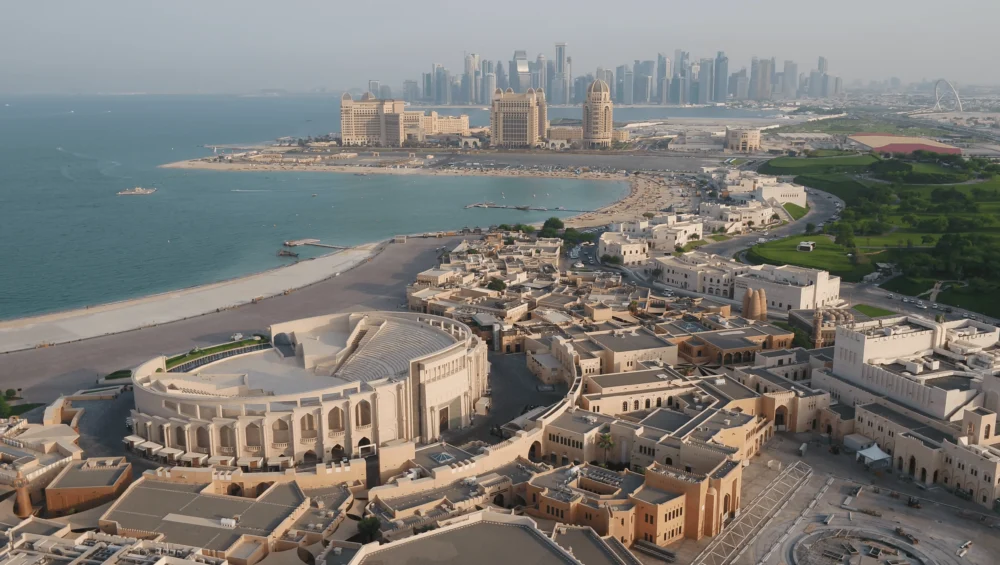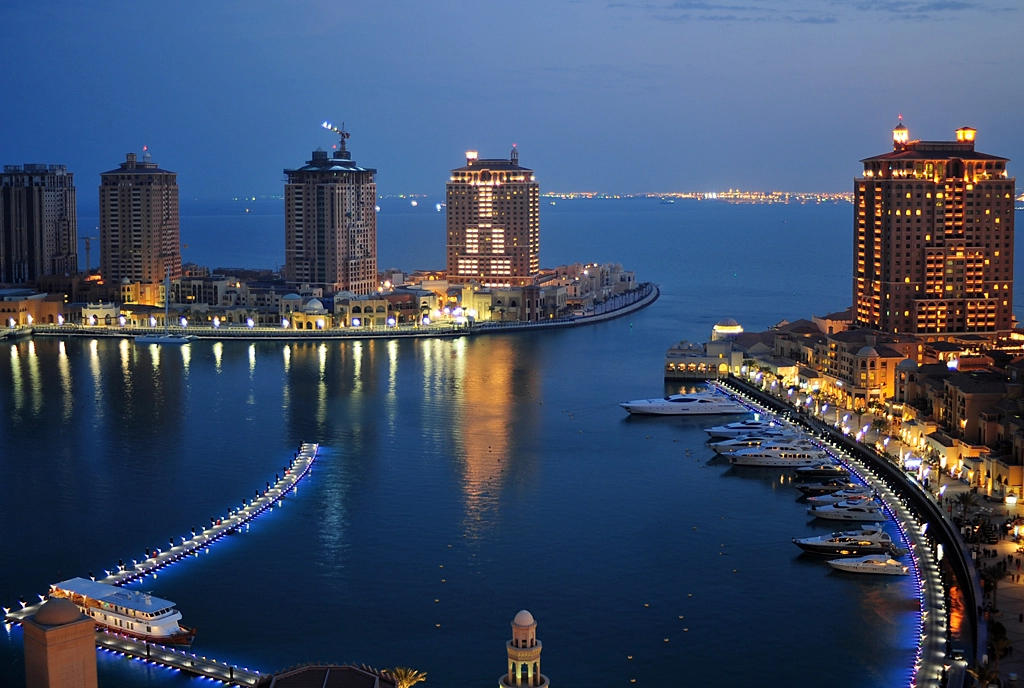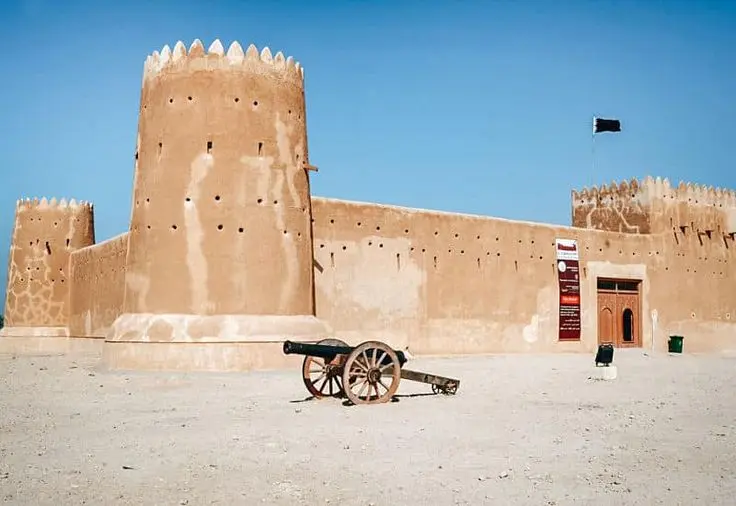Visit Panda House Qatar—Fun & Adventure for All Ages
Highlights of Panda House Qatar:
Panda House Qatar is one of the most interesting places in the country to see wildlife. It is in Al Khor Park. It is home to two cute Chinese pandas and is a popular spot for families. It also represents the friendship between Qatar and China. Since its grand opening in 2022, the Panda Zoo Qatar has welcomed thousands of visitors, becoming one of the top destinations for nature lovers and curious tourists alike.
With beautiful green surroundings, cool air-conditioned rooms for the pandas, and a clean, well-maintained environment, this location sets a new standard for wildlife conservation in the region. So, whether you’re a wildlife enthusiast or planning a relaxing day with your family, visiting Panda House Qatar should be high on your itinerary.
History and Significance:
The Panda House Qatar is more than just a tourist attraction. It represents a historic moment—the first-ever giant pandas to be housed in the Middle East. In 2022, two giant pandas, Suhail and Soraya, were gifted by China to Qatar as a sign of deepening ties.
These pandas live in a special home made to feel like their natural environment in China’s Sichuan province. Their presence in Qatar not only attracts more tourists but also helps people learn about caring for nature and animals.
Al Khor Park Panda Section:
Al Khor Family Park, where the Panda House is located, is one of the largest and most well-equipped parks in Qatar. Covering over 240,000 square meters, the park includes mini-zoos, botanical gardens, amphitheaters, waterfalls, and of course, the famous Panda House.
What Makes Al Khor Park Unique?
-
- Lush Greenery: Rare for the region, this park offers large shaded zones and plenty of open spaces.
-
- Mini Zoo: Besides the pandas, the zoo includes ostriches, peacocks, deer, and more.
-
- Playgrounds & Picnic Areas: Ideal for families with children.
-
- Cultural Zones: Learn about Qatari heritage in dedicated spaces.

How to Visit Panda House Qatar:
Planning your trip is easy! You can reach Al Khor via:
-
- By Car: 45 minutes from Doha
-
- Group Transport: You can contact with many travel agencies, like Discover Arabia, for easily group transport
We recommend booking tickets in advance during weekends or holidays to avoid long queues. Or you can Book Your Panda House Tour here, We cover everything includes tickets.
Chinese Panda Qatar Arrival:
The pandas, Suhail and Soraya, were flown from China’s Wolong Panda Reserve to Qatar via a chartered flight with special care. Their names were chosen through a public vote in Qatar, symbolizing harmony and cultural exchange.
-
- Suhail: Male panda, known for his playful nature
-
- Soraya: Female panda, slightly shy but very curious
Their enclosures in Panda House are designed with temperature-controlled rooms, climbing structures, and bamboo gardens, ensuring they feel right at home.

Panda House Qatar Tour Package Options:
Whether you’re a local resident or an international traveler, there are multiple ways to enjoy this attraction through curated Panda House Qatar tour packages. Check Panda House Tour for package details.
Panda House Qatar Location:
Location: Al Khor Family Park, Al Khor City, Qatar.
Look for the dedicated Panda Zone near the central lake of the park. The attraction is clearly signposted, with parking available for over 500 vehicles.
Panda House Opening Hours:
-
- Sunday to Thursday: 8:00 AM – 10:00 PM
-
- Friday & Saturday: 10:00 AM – 11:00 PM
-
- Holidays: May have extended hours
Pro Tip: Visit in the early morning to see the pandas most active.
Panda Zoo Qatar Experience
Inside the Panda House, visitors enjoy an immersive experience with indoor viewing galleries, educational displays, and interaction zones (no physical contact with pandas for safety).
Feeding Time and Activities
-
- Best Time: Between 9:00 AM – 11:00 AM
-
- Educational Talks: Held every hour
-
- Souvenir Shops: Pick up panda-themed gifts and plushies
Things to Do Near Panda House Qatar
If you’re spending a full day in Al Khor, don’t miss:
-
- Al Thakira Mangroves (Kayaking & nature walk)
-
- Al Khor Corniche
- Al Khor Corniche
-
- Qatar Aquarium Zone (Coming soon)
-
- Al Bayt Stadium (FIFA World Cup 2022 venue)
Food Courts, Lakes, Playgrounds
Enjoy a variety of Qatari and international cuisine, paddle boats on the lake, or let your kids play in shaded, safe playgrounds while you relax in nearby gardens.
Is Panda House Qatar Worth Visiting?
Absolutely. With modern facilities, beautiful green spaces, and the once-in-a-lifetime chance to see Qatar Panda Bears, this destination is truly worth your time and money. Tourists often rank it among the Top 5 Wildlife Attractions in Qatar.
Where to See Pandas in Qatar
Currently, Panda House Qatar in Al Khor Park is the only place in Qatar — and the entire Middle East — where you can see live pandas.
Wildlife Attractions in Qatar
Besides Panda House, explore:
-
- Al Dosari Zoo & Game Reserve
- Al Dosari Zoo & Game Reserve
-
- Al Wakrah Animal Park
- Al Wakrah Animal Park
-
- Katara Nature Reserve
- Katara Nature Reserve
These offer insight into desert wildlife and conservation programs in Qatar.




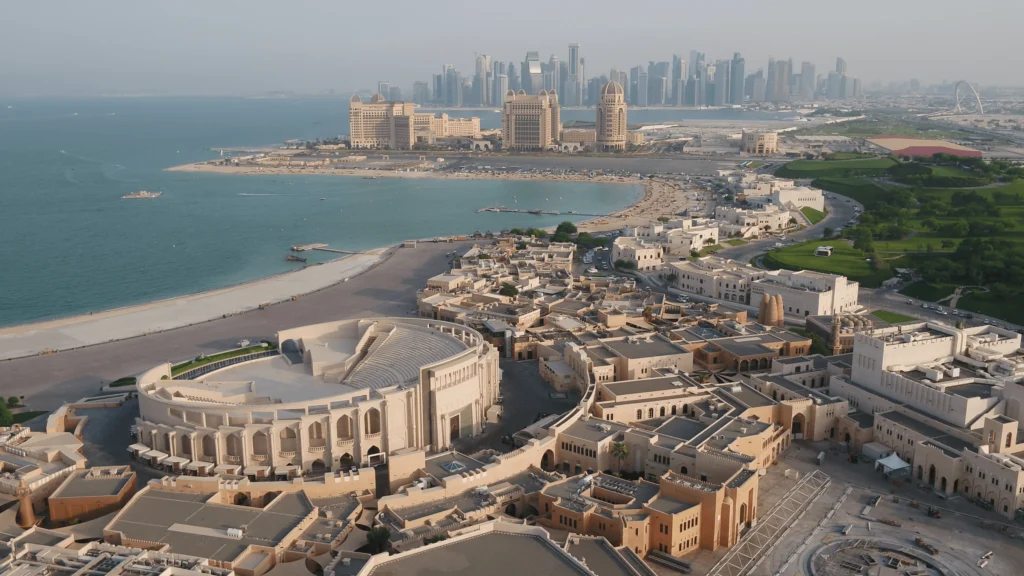








 Try at: Al Tawash
Try at: Al Tawash